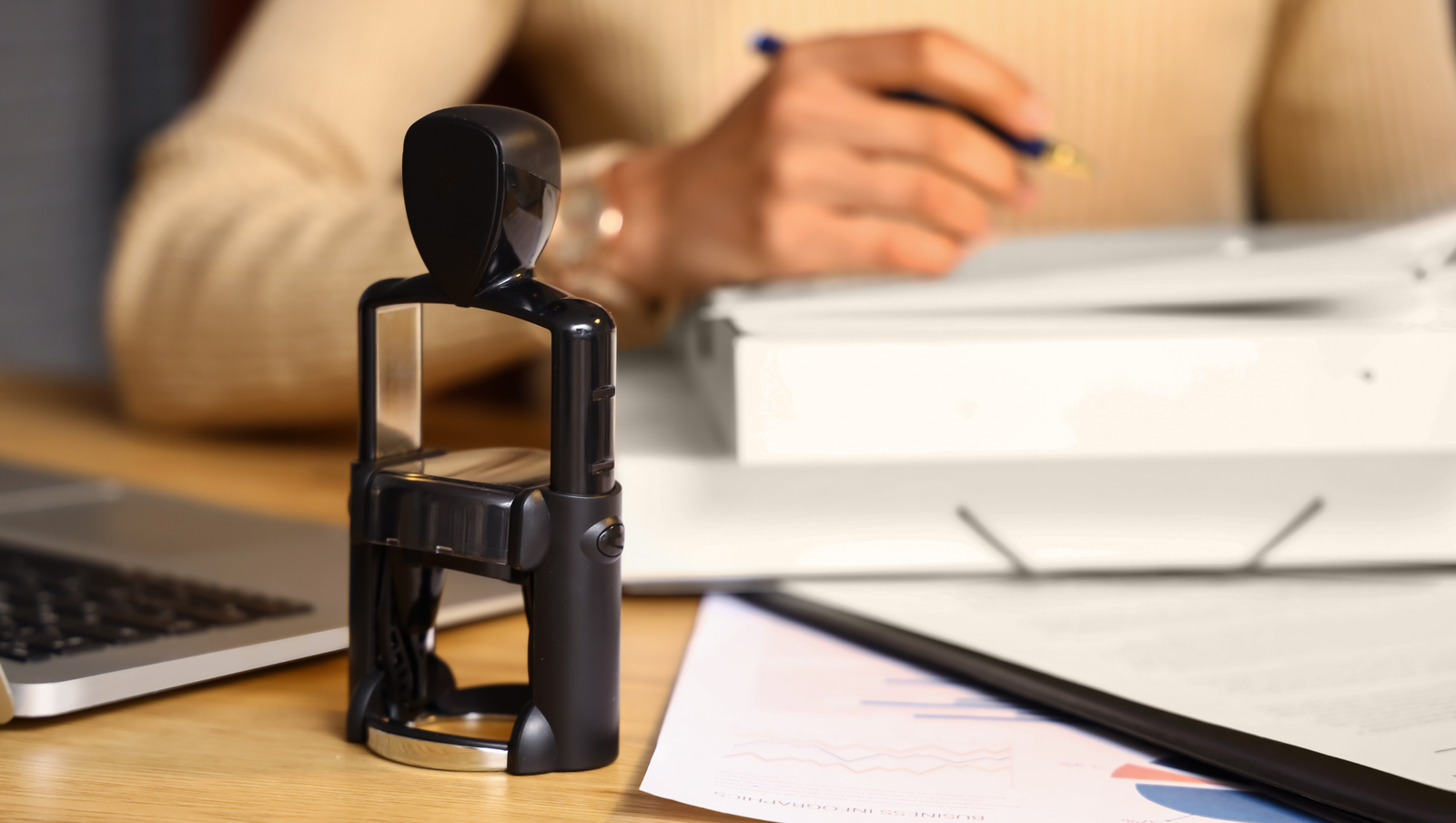Imagine signing an important contract, sealing a deal, or finalizing a legal agreement. But before it truly holds weight in the eyes of the law, there’s one final step standing between you and full legal recognition, which is notarization.
In the Philippines, notarization is more than just stamping a document with a seal. It’s a vital process that confirms a document’s authenticity, verifies the identity of the signatories, and makes the document legally valid.
What is Notary?
Notary is a crucial process that validates and authenticates documents, ensuring they are legally binding and officially recognized by courts, government agencies, and other institutions. It involves the formal authentication of a public document by a qualified notary public.

During notarization, a notary public verifies the document and the signer’s identity, witnesses the signing of the legal document, and confirms that the affiant and witnesses are acting voluntarily. The notary public then affirms the validity of the document by affixing their signature and notarial stamp or seal, making the notarized document considered self-authenticating court evidence in case of legal disputes.
What are the Types of Notarization?
There are two types of notarization, which are:
- In-Person Notarization is the traditional method of notarization. It is where you as the affiant and your witnesses must be physically present before a notary public affirms and acknowledges the document.
- Online Notarization is the modern approach for notarization. It allows you to get your documents notarized either through a physical presence or video conference. Additionally, online notarization has its two types:
- In-Person Electronic Notarization (IEN) requires your and your witnesses physical presence before the notary public.
- Remote Online Notarization (RON) allows you and your witnesses to appear before the notary public virtually, using audio-video conferencing platform.
What are the Requirements for Notarization of Documents?
In the Philippines, the primary requirement for notarization is the original version of the document that needs to be notarized. Photocopies or digital copies are generally not accepted for notarization unless allowed by law or regulation.
You as the affiant and your witnesses must be physically present before the notary public. This ensures that the notary public can verify your identity and confirm that you are signing the document willingly and knowingly.
Additionally, you and your witnesses must present valid identification documents to the notary public. These documents include government-issued IDs such as passports, driver’s licenses, or other identification cards that contain a photograph and signature. Note that additional requirements for notarization may be required.
How to Notarize a Document in the Philippines?
In the Philippines, you may get your document notarized either in-person or online.
In-Person Notarization
To notarize a document in-person, you must follow these procedures:

- Prepare the Documents. Prepare the document to be notarized along with the supporting documents. Ensure to have all the necessary documents for a smooth transaction and to avoid any delay.
- Personal Appearance. You must appear in person before the notary public. This is to confirm your identity and ensure that you’re signing willingly and without coercion.
- Verify Your Identity. Present a valid ID to the notary public to verify your identity.
- Sign the Document. You must sign the document in the presence of the notary public.
- Notary Certification. Once the notary public has confirmed the document’s validity and your identity, they will sign and seal the document to certify its authenticity.
- Pay the Fees. Notarization fees vary depending on the document type and the notary’s service fee.
- Document Recording. The notary public will record the notarized document in the Notarial Register. This includes the date of notary, names of parties involved, and the type of document.
- Issuance of Notarized Document. After recording, the notarized document will be issued to you.
Online Notarization
To notarize a document online, you must follow these procedures:

- Appearance. If you will get your documents notarized through In-Person Electronic Notarization (IEN), your and your witnesses’ physical appearance is required while if it’s through Remote Electronic Notarization (REN), a video conference is required.
- Verification of Identity. The Electronic Notary Public (ENP) will verify the identity of you and your witnesses using the identity verification mechanisms provided by accredited Electronic Notarization Facilities (ENFs).
- Confirmation of Voluntariness. The ENP will confirm that you and your witnesses are acting voluntarily by reading, interpreting, and explaining the nature of the electronic document.
- Perform of Notarial Acts. The ENP will perform the necessary notarial acts, which may include acknowledgement, affirmation, oath, jurat, signature witnessing, and copy certifications. Signatures may be affixed using the ENF in full view of the ENP, or they may be pre-signed, with the signatories confirming their signatures.
- Issuance of e-Notarial Certificate. The ENP will complete the e-notarial certificate by affixing their e-signature and attach their e-notarial seal.
- Upload of Notarized Document. A copy of the notarized electronic document will be uploaded to the Supreme Court Central Notarial Database.
- Electronic Notarial Book. The ENP will maintain an electronic notarial book, which should be integrated into the ENF used by the ENP.
Who Can Notarize a Document?
It is a common misconception that all lawyers can notarize documents. As a matter of fact, lawyers are not automatically notaries public. To become a notary public, a lawyer must meet the qualifications of the 2004 Rules on Notarial Practice and file a Petition for Notarial Commission with the Executive Judge where they wish to practice.
Additionally, the notary public’s power is limited. They can only notarize documents within their territorial jurisdiction. They are also prohibited from notarizing documents for their spouse, common-law partner, ancestor, descendant, or relative by affinity or consanguinity within the fourth civil degree.
What are the Qualifications of Notary Public?
Not all lawyers can notarize a document. For them to be a notary public, they must meet the following qualifications:
- Citizen of the Philippines
- Over twenty-one (21) years old
- Resident in the Philippines for at least a year
- Maintains a regular place of work or business in the Philippines for at least a year where the commission is issued
- Member of the Philippine Bar in good standing with clearances from the Office of the Bar Confidant of the Supreme Court and the Integrated Bar of the Philippines
- Successfully completed a notarial practice course, seminar or training
- Not have been convicted in the first instance of any crime involving moral turpitude
What are the Qualifications of Electronic Notary Public (ENP)?
Electronic Notary Public (ENP) is a notary person who is authorized to perform electronic notarial acts, with the following qualifications:
- Member of the Philippine Bar in good standing with clearances from the Office of the Bar Confidant of the Supreme Court and the Integrated Bar of the Philippines
- Compliant with the Mandatory Continuing Legal Education and Unified Legal Aid Service requirements
- Resident in the Philippines for at least a year
- Maintains a regular place of work or business in the country
- Have not been convicted of any crime involving moral turpitude
Why is Notarization of Documents Necessary?
Having your documents notarized has several benefits, including:

Prevent Fraud and Unauthorized Signature
Notarization safeguards the document against fraudulent activities and unauthorized signatures by requiring signatories to appear before a notary public, and to confirm their identity and declare their intent. By this process, it will become harder for anyone to forge their signature and even pretend to be the document’s owner.
Validates Authenticity
Notarization validates the authenticity of a document and its signatures, providing all parties involved e that the document is legitimate and untampered.
Legal Validity
Notarization is necessary for documents to be considered legally valid, particularly for those that will be submitted to government agencies or used in court proceedings.
Facilitate Transactions
Notarization can ensure that a document is recognized and accepted in other countries, which is vital for international transactions.
Provide Evidence
In legal disputes, a notarized document can serve as evidence, as the notary public’s seal and signature confirm that the document was properly signed and that the involved parties were who they claimed to be.
Need further information and assistance regarding Notarization? Talk to our team at Duran & Duran-Schulze Law in Bonifacio Global City, Taguig, Philippines to know more about the requirements and process. Call us today at (+632) 8478 5826 or +63 917 194 0482, or send an email to info@duranschulze.com for more information.







